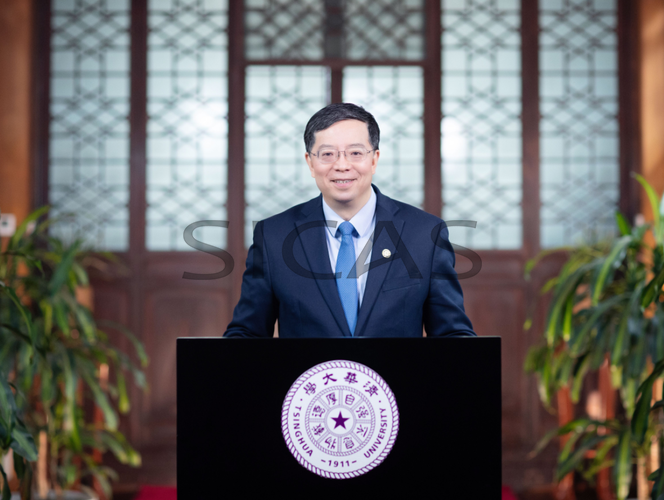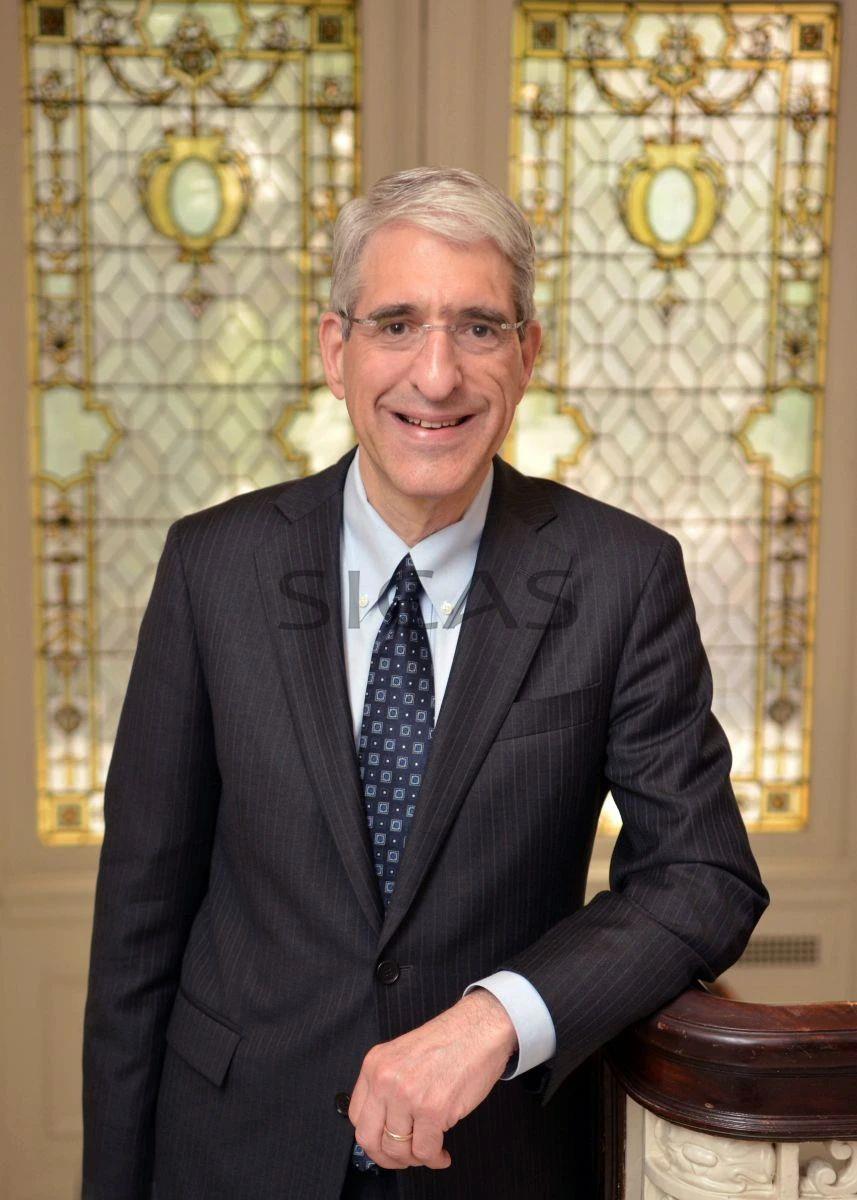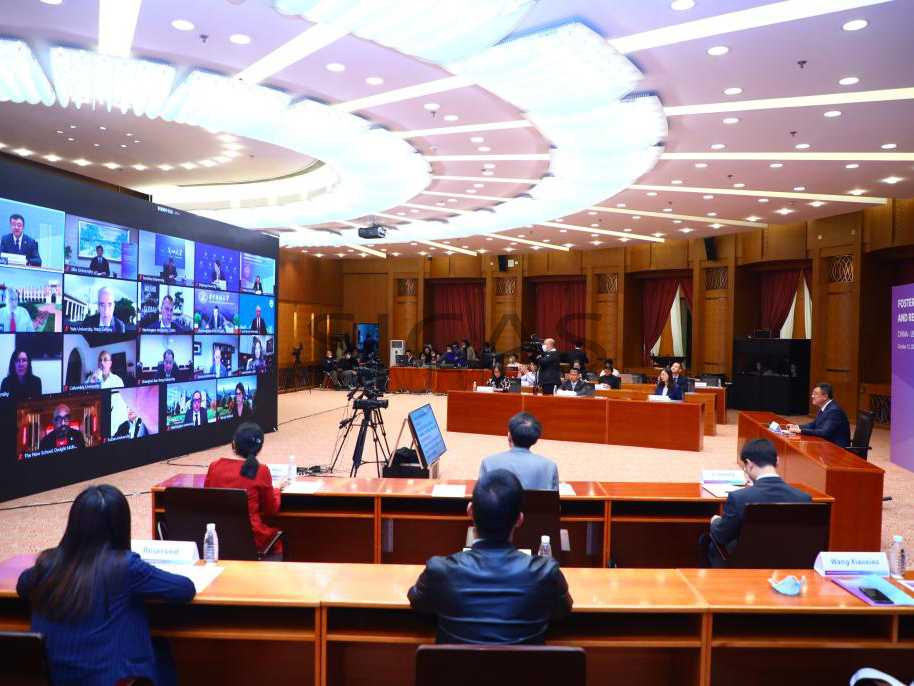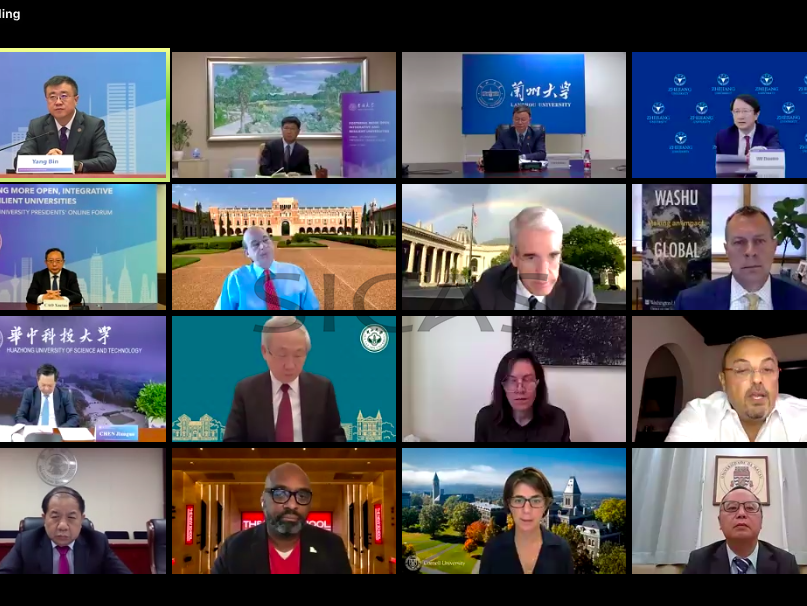

 |
20 China and US Leading Universities Seek Cooperation at ForumThe China-US University Presidents’ Online Forum, jointly organized by Tsinghua University and Yale University, was held on Tuesday, bringing together leaders from 20 leading Chinese and American universities to explore the development of higher education and to strengthen the post-pandemic resilience of university collaborations and networks.
Chinese Vice-Premier Sun Chunlan delivered her congratulatory remarks via video during the opening session of the online forum held under the theme “Fostering More Open, Integrative and Resilient Universities.”
Sun said, higher education represents a space of advanced collaborative exchange between China and the US, enhancing the mutual understanding and friendship between the peoples of China and the US, and promoting the development of China-US relations.
Sun said she was hopeful that universities of China and the US will, under the principles of openness and inclusiveness, leverage their complementarities and broaden the space for cooperation in education, research and joint programs.
“It is hoped that universities enhance mutual learning through communication, and mutual trust through cooperation,and contribute to the building of a community of shared future for mankind. ” she added.
Tsinghua University President Qiu Yong, delivering his opening remarks, said that by bringing together colleagues from leading universities in China and the US, Tsinghua hoped to highlight the importance of global collaborative engagement, and better understand the development of universities more broadly.
President Qiu urged all the universities to be united in the fight against profound challenges that humanity faces such as global health emergencies, climate change, economic volatility, social inequality, and ecological degradation.
He said universities have been marching towards openness, imparting knowledge and wisdom to all mankind, and promoting exchange and cooperation in local and global communities.
“If universities are to fulfill their mission to advance human development and expand the boundaries of knowledge, we must become more open, more integrative and more resilient,” he added.
President Qiu argued that universities have demonstrated their resilience throughout history as one of the oldest type of institutions in existence, surviving countless wars, crisis, and challenges of all kinds in human civilization.
He said that universities once again proved their resilience during the COVID-19 pandemic by adjusting teaching and learning models and playing an irreplaceable role supporting global health by understanding the virus and developing vaccines and treatment in a short span of time, and through these efforts will make humanity better prepared for future health crises.
President Qiu stressed that universities of the future must be “more integrative” and should continue to break through physical borders, disciplinary barriers, technological limitations, and identity constraints, and seamlessly connect with societies, governments, NGOs and industries.
Likewise, Yale University President Peter Salovey said in his opening remarks that the way research universities around the world have responded even though the world is experiencing a true global disruption has demonstrated that open, integrative resilient research universities are built on cooperation across national borders.
“Although I am realistic about the difficulties in the coming months, I am confident that the lessons we are learning and the ways we are adapting will help us emerge with resilience and strength. This includes a renewed sense of purpose in building sustaining our international collaborations, learning from history,” he said.
“In addition, we can and should leverage our response to the COVID-19 crisis to change how we address other global threats, such as climate change and geopolitical tensions,” he added.
Following the opening ceremony, the forum then featured three keynote speech sessions in line with its main theme. The first session, moderated by Tsinghua University Vice President and Provost Yang Bin, saw a discussion on “Fostering More Open Universities,” while President Michael A. McRobbie and Vice President Hannah Buxbaum from Indiana University, Vice President Chen Jianguo from Huazhong University of Science and Technology, Rector Yonghua Song from University of Macau, Executive Vice President Safwan M. Masri from Columbia University, President Lin Zhongqin from Shanghai Jiao Tong University, and President Luo Jun from Sun Yat-sen University attended the session.
Indiana University President McRobbie said, “In the internet age, the research enterprise has become necessarily global as it is through collaboration of the best and the most stable researchers from all countries, contributing diverse innovation, approaches and methods that fundamental breakthroughs are made and that we are able to address the critical challenges of the day.” Huazhong University of Science and Technology Vice President Chen Jianguo also believed that opening-up is core to university development and is the source of its vitality and creativity. He said, “If the pandemic is a test of international collaboration, then our lesson from it would be: the more open a university is, the more momentum it will release, especially when confronting challenges we globally face.”
“Fostering More Integrative Universities,” was the theme of the second session, moderated by Kurt Dirks, Vice Chancellor of Washington University in St. Louis. This session saw President Xu Ningsheng from Fudan University, President David W. Leebron from Rice University, President Zhang Xi from Jilin University, Chancellor Kent Syverud from Syracuse University, President Cao Xuetao from Nankai University, and President Ruth V. Watkins from The University of Utah as the speakers.
“Despite the current obstacles, we need such global collaborations now more than ever,” Rice University President Leebron said, delivering a PowerPoint presentation on “The Borderless University.” President Cao Xuetao from Nankai University and President Xu Ningsheng from Fudan University, in separate speeches, pushed for effective integration, connection and collaboration among universities worldwide including China and the U.S.
The last session addressed the theme of “Fostering More Resilient Universities.” Wendy Wolford, Vice Provost, Cornell University, was the moderator as well as one of the speakers of the session. Other attendees of the session were Chancellor Andrew D. Martin from Washington University in St. Louis, President Yan Chun-Hua from Lanzhou University, President Laurie Leshin from Worcester Polytechnic Institute, President Wu Zhaohui from Zhejiang University, and President Dwight A. McBride from The New School.
Addressing the session, The New School President McBride said that his university’s relationship with overseas universities like Tsinghua helped it to be responsive and resilient during the pandemic, urging the university leaders to find ways to work across political and bureaucratic barriers in the interest of the educational mission higher eduation institutions all share. Likewise, Zhejiang University President Wu Zhouhui also said that his university was looking forward to using the form as an opportunity to jointly push university cooperation in the post-pandemic era to a higher-quality development state, and contribute greater wisdom and strength to the China-US friendship and human development.
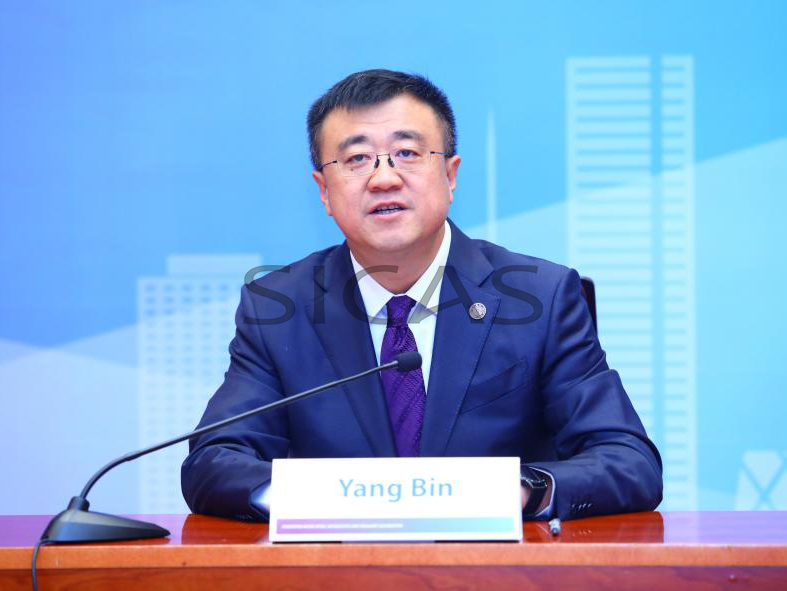
The forum concluded with a closing remark from Tsinghua Vice President and Provost Yang Bin. He said, “The pandemic and subsequent travel restrictions have added additional layers of complexity to educational exchanges and mobility, but through proactively searching for solutions and promoting communication and mutual understanding, we can turn challenges into opportunities and foster more open, integrative and resilient universities together”.
source:Tsinghuauni
Click here to start your application.
Contact us if you are interested in studying in China Whatsapp: +86-15318861816 Email: service@sicas.cn
Read also:
How to apply Chinese universities.
Study chinese online, anytime & anywhere.
International students' colourful life in China.
Apply Chinese universities with scholarship.
|







